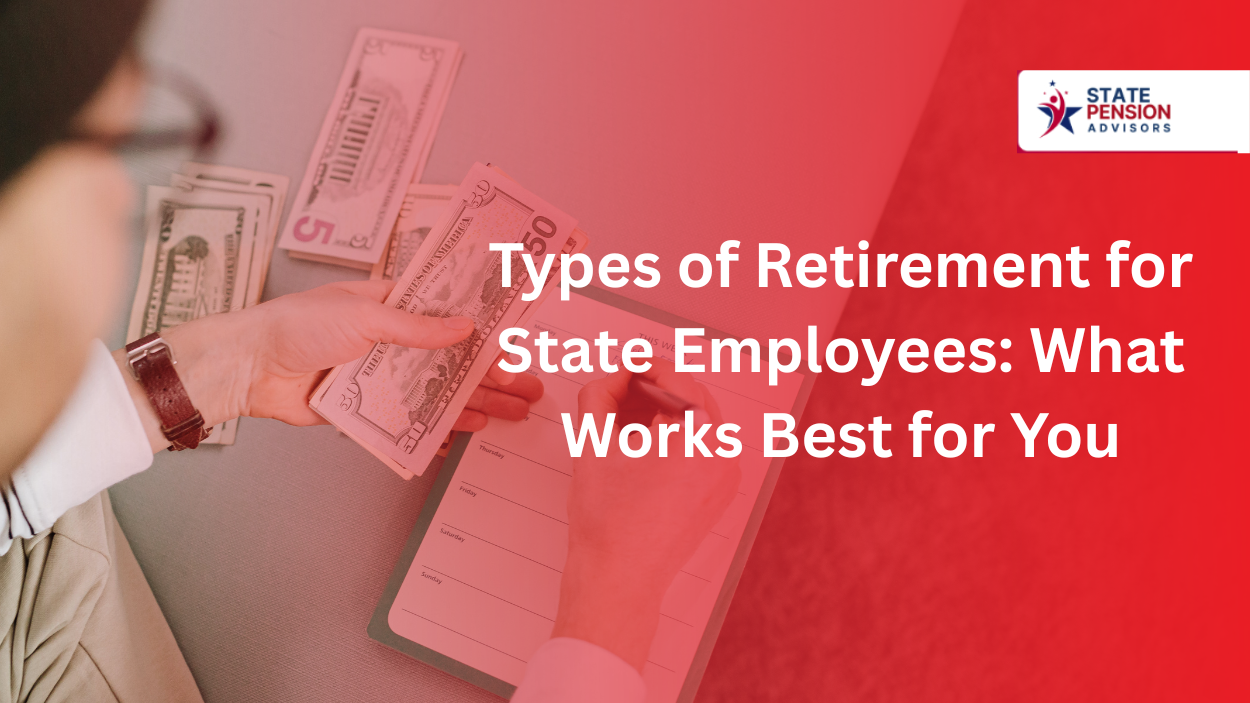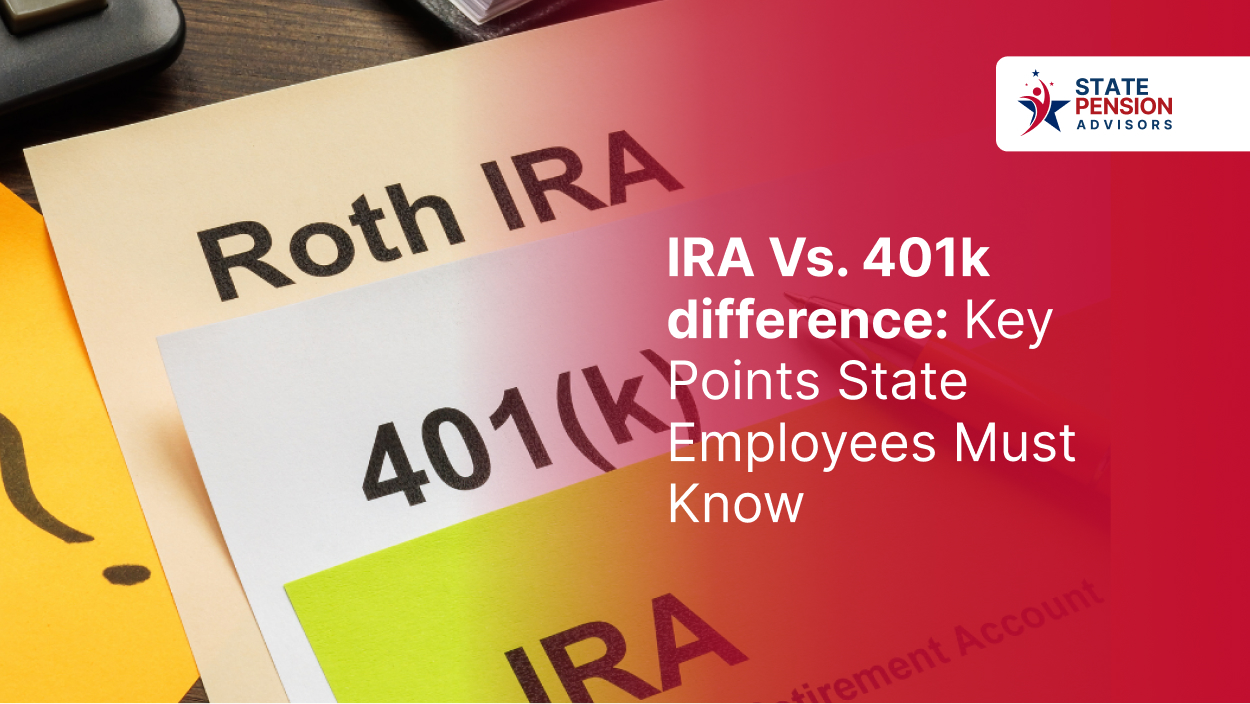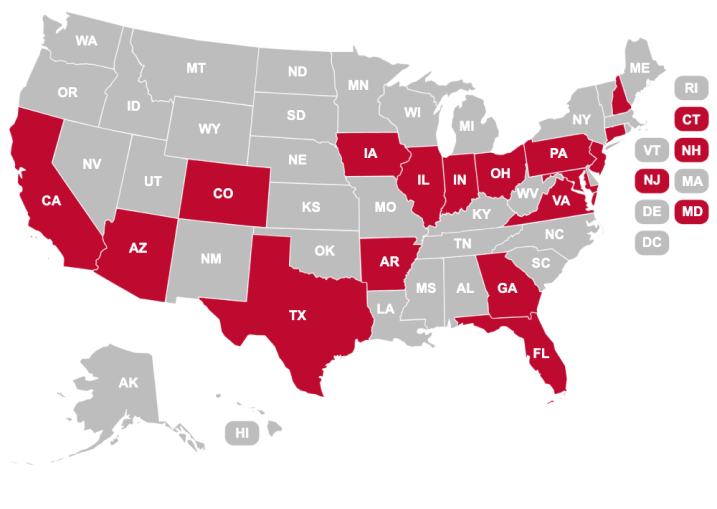How Does A 401k Work When You Retire? All You Need to Know
.jpeg)
h2,h3
Want to know how does a 401k work when you retire? Having a clear understanding of this is important to avail of the maximum benefits of your 401k retirement plan. Whether you are starting off with your contributions or nearing retirement, this blog is just for you! Let’s find out what happens to your savings when you reach retirement age. Also, you’ll learn about how can avoid taxes and maximize the income from your 401k at retirement.
- Your 401(k) savings provide a steady retirement income, which can be strategically used alongside other funds like IRAs and Social Security.
- At 59 ½, you can withdraw from your 401(k) without penalties but will still owe income taxes on each distribution.
- At age 73, you must begin taking required minimum distributions from your 401(k) to avoid hefty penalties
- You can keep funds in your 401(k), set up periodic withdrawals, roll over to an IRA, or withdraw all your funds to manage your retirement income.
How Does a 401k Work When You Retire? A Comprehensive Guide
It takes you years to save up the money you need to live the life of your dreams after retirement. So, you should know what’s the best way to utilize it. For this, it’s important to thoroughly know how does a 401k work when you retire.
“A 401k plan allows its participants to contribute a portion of their annual paycheck to save up for retirement.” – Wikipedia
Well, your 401k retirement account provides you with a solid income to lead a financially sound retirement. Therefore, it is an important aspect of your financial life and you should know how it works. Besides, having knowledge about the working of your retirement plan, be it 401k or 457b or 403b is important for the following reasons:
- Tracking Your Savings
- Maximizing Your Benefits
- Avoiding Penalties
- Complying with Tax Laws
Are you nearing the retirement age? If so, it's time to know how does a 401k plan work when you retire. After all, you have ground yourself in the 9 to 5 only to enjoy these years the way you want. But hey, do you know how to extract maximum benefits from it? No? Well, don’t worry because I’ve got you covered. Here is how your retirement plan operates to fund your retirement.
• Consistent Source of Income
Your 401k retirement plan provides a smart way to save for a secure future. By contributing from your salary every year, you gather a considerable amount that serves as your retirement income. You can map a strategic plan on how you’ll utilize your retirement money. Whether you’ll travel, buy something, or use it as a regular source of income depends on you. Besides, you can use it in conjunction with other retirement fund sources such as another retirement plan (IRA or any other), your social security etc. Moreover, to make the most out of your plan, it’s wise to hire a 401k financial advisor. After all, they can empower you with the tactics to use your income in the most beneficial way.
This is the main point to know when learning about how does a 401k work when you retire.
• Get Penalty-Free Withdrawals
You can start withdrawing your money penalty-free once you turn 59 ½. After this age, you don’t have to pay any penalty as for early withdrawals from your 401k account. On the other hand, participants of the plan who withdraw money before this age are subject to pay an early withdrawal penalty of 10% on their withdrawal along with regular income taxes. You should know that after the age of 59 ½, your withdrawals become penalty-free but not tax-free. Yes, that’s right! Each of your withdrawals will be treated as taxable income.
“When you take distributions from your 401k, your service provider withholds 20% of it as Federal income tax.” – Internal Revenue Service
Quick Question: What is the Rule of 55?
The Rule of 55 is a rule of the Internal Revenue Service that allows participants of 55 years or older to make withdrawals by paying the 10% early penalty. According to it, if you are at this age and part ways with your employer you can take out money from your employer-sponsored retirement account without any penalty on it. Moreover, this rule gives you the option to retire early as you can access your retirement funds now.
• Required Minimum Distribution
Whether or not you need the money after you retire, you have to start taking the distributions at the age of 73. These are called required minimum distributions. The IRS uses them for the timely and efficient collection of taxes on these funds. After all, those who are not able to take required minimum distribution have to pay heavy penalty – 25% excise tax – on all the expected withdrawals. You should know that if you are the one who fails to take out RMDs, you’ll have to lose a big chunk of your money to taxes. However, if you are still working at the age of 73, you are not required to take out these distributions. Besides, the age for RMD is expected to increase to 75 in 2033.
• Your Distributions are Taxable
You may be aware of the fact that there are two types of 401(k)s: traditional and Roth. While Roth distributions are tax-free, traditional accounts have a different scenario. Because the contributions you made were tax-free (with traditional), you have to pay taxes on each distribution. Besides, your distributions are taxable no matter what your age is. This means whether you are 59 ½ or younger or older, you’ll have to pay income taxes on each of your withdrawal. Moreover, it totally depends on you how you want to take the money – smaller withdrawals over a larger period or a lump sum. But you have to make the decision very wisely.
How to Access Your 401k Funds When You Retire?
To comprehend – how does a 401k work when you retire? – here is the next step: accessing your funds. You don’t have a compulsion on whether or not you should keep your money in your retirement account. It’s your retirement income and you can use it the way you like. However, what happens to 401k when you retire depends on how you take it out. You usually have four options on what to do with your 401k. Moreover, you have to keep these two things in mind:
- You can’t contribute to your 401k once you stop working
- If you decide to keep your money in your 401k, you’ll have to keep paying the fees
You can go for whatever you want in terms of accessing your funds based on your lifestyle, goals, and needs. Anyhow, here are some more ways through which you can access your 401k funds:
1. Keep Your Money in Your 401k
As aforementioned, it is not mandatory to take out your money out of your 401k; you can leave it in the account. However, you should know that some(k) plans need you to have a minimum amount of money in your account to effectively use it. If your balance is less than this amount, you will have to move your money to an IRA. Apart from this, if you decide to keep your funds with the plan, you’ll have to continue paying the plan fees. And this can eat up your retirement funds quite quickly. Clearly, this one is not a very cost-effective option. So, make your decision wisely.
2. Set Up Periodic Withdrawals
This option lets you use your retirement funds as a consistent source of income. After all, you can transfer of periodic withdrawals to your account on a regular basis. As a result of choosing this method, you get a cash flow to move your life forward. Besides, taking small amounts from time to time helps you avoid taxes on the whole balance. Whether you want money every month or every year, you can set up your withdrawals accordingly. The decision should be based on your life expectancy, lifestyle, and the total savings you have.
3. You Can Roll Over to an IRA
This can be a really smart move. In fact, rolling over to an IRA can benefit you a great deal if your 401(k) charges high fees or you have invested in multiple retirement accounts. Firstly, an IRA comes with a relatively lower plan fee as compared to a 401k. Furthermore, it has more investment options which means you have more choices. Also, just like with 401k, you can still enjoy tax-deferred retirement income. So, it’s clear that transferring retirement funds to an IRA can be a better choice for you in a lot of ways. It makes a make managing your investments easier and more cost-effective in the long run. Those who want to avoid maximum risks can go for this option.
4. You Can Opt for Roth Conversions
The approach can be a great strategy. Most people think Roth can benefit you only when you are working but this is not true. You can even strategically use it to maximize your tax benefits after retirement. In fact, you can save tens of thousands in taxes. But hey, navigating the world of retirement plans all alone can be really stressful. Therefore, it’s better that you seek guidance from pension plan consultants. They are always up to tackle the challenges you face on your way to a peaceful retirement.
Can I take all my money out of my 401k when I retire?
Apart from the above options, you can also withdraw all your money out of your 401k after retirement. This means the answer to this question is: yes! As you know by now there is no restriction on the way you access your retirement account. But there surely are some strategies you can use to maximize the benefits. Some of them are mentioned above and one is: taking out the amount in a lump sum.
Advantages of Lump Sum Withdrawal
You can take out all your funds instead of small, periodic distributions and transfer them to your bank account for use, Here are some of the benefits you can enjoy:
- Accessing your funds all at once
- Free to Reinvest it as you see fit
- Use it in case of financial crisis
Moreover, this approach comes in handy if you want to make a big purchase, for instance, buying a home. Also, you can reinvest in a broad range of options as compared to what you had in your 401k. If you have a low balance and don’t want to transfer to an IRA, you can go for this method. Apart from retirement, this method is also super beneficial if you are your job. So, now you know how does a 401k work when you retire and take out all the amount.
Disadvantages of Lump Sum Withdrawal
Although lump sum withdrawals are beneficial in several ways, they come with some drawbacks too. Here are some of them:
- Higher tax deduction due to higher contribution amount
- You may have a temptation to spend more
- No longer able to earn on the basis of tax deferrals
This means once you have taken out your funds from your 401k, you are no longer able to grow your money on a tax-deferral basis. Resultingly, the return on your investment decreases over time. So, when choosing how to access your retirement savings/income, pick wisely.
Installments vs. Lump Sum: Which is Better?
Both strategies have their own pros and cons. What’s right for you depends on your retirement goals, lifestyle, and life expectancy. However, when going through how does a 401k work when you retire, studying both is important. Whether you have a 401k or 403b or 457b, the decision about distributions is all yours. Besides, here is a comparison for better understanding:
With the above comparison, you are even more clear about how does a 401k work when you retire. Now you can make a better decision for yourself. Still, if you feel stranded you can consult an advisor. After all, professionals are well versed in all sorts of plans such as 401k or 457b or 403b. However, they can only guide you, the final decision will only be yours.
How Does Your 401k Work for Withdrawals Before Retirement?
By now you know how does a 401k work when you retire, let move on to how the withdrawals work before retirement. Life is unpredictable and any emergency can come up, be it a financial one or a medical one. Well, you can surely withdraw from your retirement account. However, if under 59 1/2, you will have to pay a 10% early withdrawal penalty along with the income taxes. But can you skip it by any means?
Yes, you can! According to the Internal Revenue Service, here are some exemptions from the early withdrawal penalty:
- If you lose your job or leave for a new one at the age of 55
- If you choose to receive a series of small equal payments from your 401k
- Court orders to cash out all your 401k and split it up with your spouse
- Domestic abuse survivors can take out around 50% or $10000 from your account, whichever is less
- For qualified birth or adoption expenses, you can take out $5000 per child
- Emergency distribution of $1000 per calendar year in case of a family emergency
- Penalty-free withdrawals in case of a terminal illness are permitted
- Those with certain disabilities can take out funds penalty-free
- If you roll over your retirement savings from 401k to another account within 60 days
- Payments to beneficiaries in case of the participant’s death are also penalty-free
- Withdrawals to pay an IRS levy are not subject to penalty
- Experiencing economic loss due to a federally declared disaster
- If you have unreimbursed medical expenses exceeding 7.5% of your adjusted gross income (AGI)
- Qualified military reservists called to active duty are not subject to pay penalty
- Withdrawing if you were auto-enrolled in a 401(k) or making distributions to balance excess distributions
If you don’t fall into this list, you will have to pay the 10% early withdrawal fine on the amount you take out before retirement. Besides exploring how does a 401k work when you retire, you even know how it works in your benefit before retirement.
Get the Right Advice for Your 401k Plan Now!
Are you planning to sign up for a 401k? Or maybe about to say goodbye to your work life? Well, in both cases, knowing how does a 401k work when you retire is important. At State Pension Advisors, we provide you with the guidance you need to understand the nuances of your retirement plan thoroughly. And this is not all! We don’t just help you out with the basics, but the complexities too. From tackling tax deductions to strategizing your income, we help you with everything. So, book a meeting with us and let us connect you with a well-vetted 401k advisor. Know how does a 401k work when you retire and start planning for a secure future now!










.png)
.png)










